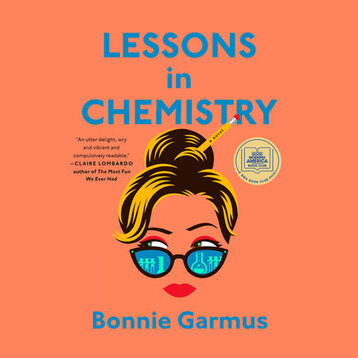|
The annual contest Revise and Resub (aka RevPit) is starting up and the window to enter is coming this week. I'm entering for the second time (first for this novel). One of my problems is that I'm pretty shy on twitter, so I haven't been interacting with the editors much. The other problem is that I usually only see threads many hours after they started and feel weird hopping on. So I thought I'd make a post with some ~vibes~ of my manuscript so if any RevPit editors check out my website, they may see this and get more of a sense of my novel without me having to manage the anxiety of Twitter interactions. Title: The New Neanderthals Genre: Adult sci-fi Included tropes: Cinnamon roll love interest Fake dating Corrupted corporation Fish out of water Songs that capture a moment/emotion: Human by Christina Perri Start a War by Klergy & Valerie Broussard Confident by Demi Lovato Look What You Made Me Do by Taylor Swift You Don't Own Me by Grace Fight Song by Rachel Platten Mood Board/Aesthetic: Photos from Unsplash If you're not doing RevPit and/or aren't a RevPit editor, then come back next week when I will have more of my usual content!
If you are doing RevPit, let's discuss in the comments! Have you done it before? Have you been braver on Twitter than I have?
0 Comments
Lessons in Chemistry is the debut novel by Bonnie Garmus, which has earned a ton of recognition and acclaim (including the Barnes and Noble Book of the Year) since it hit shelves in 2022. It's my work-based Diversity and Inclusion Book Club pick for this quarter, since this quarter includes Women's History Month.
Lessons in Chemistry focuses on Elizabeth Zott, a young woman in the 1950s/60s California who works as a chemist at a research center. She meets fellow chemist Calvin Evans, they fall in love, and--scandalously for the time--live together unmarried. After Calvin suddenly dies, Elizabeth learns she's pregnant and loses her job. The book follows her journey through grief, child rearing, and her massive success as a TV show host where she teaches chemistry and cooking. Warning: the book contains on page sexual assault, mention of another sexual assault, and an attempted sexual assault. The book offered interesting, though not surprising, insight into being a woman in the late 1950s/early 60s. Sometimes being a woman in science can still feel the way Elizabeth felt. I thought the cooking/chemistry show was interesting, a bit Bill Nye meets Alton Brown. Elizabeth was, for the most part, a character with agency, which I really liked. I also think it was written quite well in general, and the non-linear timeline was handled well, so it was very clear what was going on when. I had so many problems with the book. I want to say upfront that despite the long list of complaints below, I totally recognize that I'm not the only person who matters when reading a book and it's totally fine to disagree with me. Not every book is for every person and that's okay. I'm probably in the minority with my complaints (based on how many Best of 2022 lists it made) but I still want to air my grievances because maybe there's a reader out there like me who will realize this is not the book for them. The POV didn't work for me. I suspect it was meant to be omniscient, however there were scene breaks (example: the cafeteria proposal) that seemed intended to transition from close third POV to another close third POV, except the book still ducked between those perspectives within a single scene anyway. It didn't follow its own rules for POV which was infuriating. I also don't think Elizabeth was a chemist, because she was either a biochemist or a biologist based on what she was studying. (I consulted with a chemist, who agrees with me.) It would have been so easy to change her topic of study to something else, since abiogenesis didn't impact the plot line itself (swap in any other word for abiogenesis and nothing changes.) Another complaint is how Elizabeth spoke. I hate the trope of scientists always using the most scientific language possible (example: her first show when people had to call in to ask what the chemical formula she said was and it was vinegar). As someone who was surrounded by scientists (mostly chemists thanks to my dad) my entire life, I can confirm that even the most eccentric ones would have just said vinegar--acetic acid MAYBE, but only in the lab. When similar writing was used on The Big Bang Theory for the male characters, it was always making fun of them (the joke being "they're so smart but so socially awkward and unable to communicate, isn't that funny? So lame! Haha!") When used in this book, I felt like it was similarly mocking Elizabeth, like "Elizabeth is so smart she only uses a way of speaking that others can't understand, isn't she odd? A smart women? Haha!" It really rubbed me wrong. My last complaint is the ending, which didn't work for me at all. I won't post spoilers, but I'll just say it didn't fit the theme of the book or Elizabeth's character arc. Overall, not my favorite reading experience. I liked the concept of the story, but not the execution. It's for readers who enjoy omniscient POV (mostly), historical fiction about women (especially in science), and tragic romance. It's not for readers who will be distracted by the POV being weird, readers looking for a story about a real-life historical celebrity chef or scientist, or readers who are not in the emotional headspace to read about car accidents, partner loss, unplanned pregnancy, or sexual assault. Have you read Lessons in Chemistry? How did you feel about it? Let's discuss in the comments! |
Archives
April 2024
Categories
All
|



 RSS Feed
RSS Feed